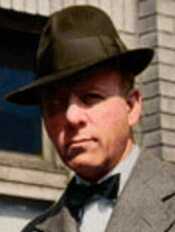
On the Record…
Grandiose idea inspired Nuernberg trials
By Dorothy Thompson
Behind the Nuernberg trials was a grandiose idea – the creation of a new international law. The purpose of this trial was not to “hang the Kaiser,” or give vent to feelings of hatred or revenge. Summary courts-martial could more quickly have removed the leading Nazis from the world.
No. The avowed object of the trials was to establish in law, solemnly, and in conformity with the “conscience of mankind,” that war is a crime; that, in the words of the Kellogg-Briand Pact, no nation may “resort to war as an instrument of national policy,” and that those who take the responsibility of breaking this pledge can be held responsible, as individuals, for their actions.
The object of the trials was, further to defend certain fundamental rights of man against the state, whether a state offended those rights in its own domain, or in the course of conquest, or as conquerors or absorbers of another state. It was to be established that physical extermination of political dissidents or of racial minorities was an act of murder, for which the initiators and collaborators could be held personally responsible; that such measures as slave labor, and the deportation of persons and families from their houses, were not permissible under any excuse of state sovereignty or national policy, and that the responsible initiators of, and collaborators with, such cruel and unusual measures could be held personally responsible before mankind. Hence the category of charges: “Crimes against humanity” and “war crimes.”
In short, not only are Goering, Hess, Von Ribbentrop, Rosenberg, and all the others on trial. Certain practices of sovereign states, which had reached their most horrible expression in Nazism, were on trial. The conviction of these men was to usher in a new reign of international law and establish a new international bill of rights, valid for all human beings everywhere.
![]()
If now the people feel no great elation regarding the outcome, nothing more than a grim satisfaction that some, at least, of the wretches will get what they dished out to others, is it not because they doubt whether anything new has become established, beyond the precedent that whoever wins a war may put the leaders of the vanquished on trial for their lives? Will this be a deterrent to war? May it not, rather, make armies and states in any future war incapable of compromise or surrender, since every leader will know that his own neck is forfeited to defeat?
The first crime charged was conspiracy to break the peace and to wage “aggressive” war. All law, however, involves definitions. What is aggression? Very significantly the defendants were not charged for attacking France and Britain, who had declared war on Germany before they themselves were attacked, in defense of an ally. In the case of Britain and France (who were judges and prosecutors), versus Germany, who was the “aggressor?” On October 31, 1939, one of the prosecutors (and judges), the USSR, through Mr. Molotov, declared that Britain and France, in continuing the war after the fall of Poland, were the aggressors. Is this expunged?
The attack on Poland was specifically charged against the defendants as an act of aggression. But one of the prosecutors had participated in the attack. Is, then, aggression sometimes justified and sometimes not, and if so, under what circumstances? Law demands definitions.
![]()
Is the crime to start a war? If so, why these mighty armies, air forces, navies, chemical researches, atomic bombs, bacteriological and poison weapons on which the energies and fortunes of the victors continue to be expended? Their purpose is war. Why not total disarmament of all states and the creation of a true international police force to see that they remain disarmed? This would seem to be the logical conclusion of the Nuernberg trials, if they are to accomplish their purpose.
Was the dropping of atomic bombs on the open cities of Hiroshima and Nagasaki, with the results described for all posterity by John Hersey, a “war crime”? Is the spending of $50,000,000 by our government to perfect a poison, “one cubic inch of which will kill 180,000,000 people,” a war crime?
Have racial persecutions ceased? Are persons and families no longer uprooted and driven out like cattle? Are political dissidents everywhere, among the Allies, safe in their freedom and lives? Are all races of men regarded equally as parts of humanity?
Unless and until a law of nations defines and affirms as crimes of universal validity the things with which the defendants in this trial were charged, and establishes both an international court and police force on which states and persons can rely for justice and protection, Nuernberg will be merely a final incident in a war, not the opening act of a new epoch of law, humaneness and peace.
